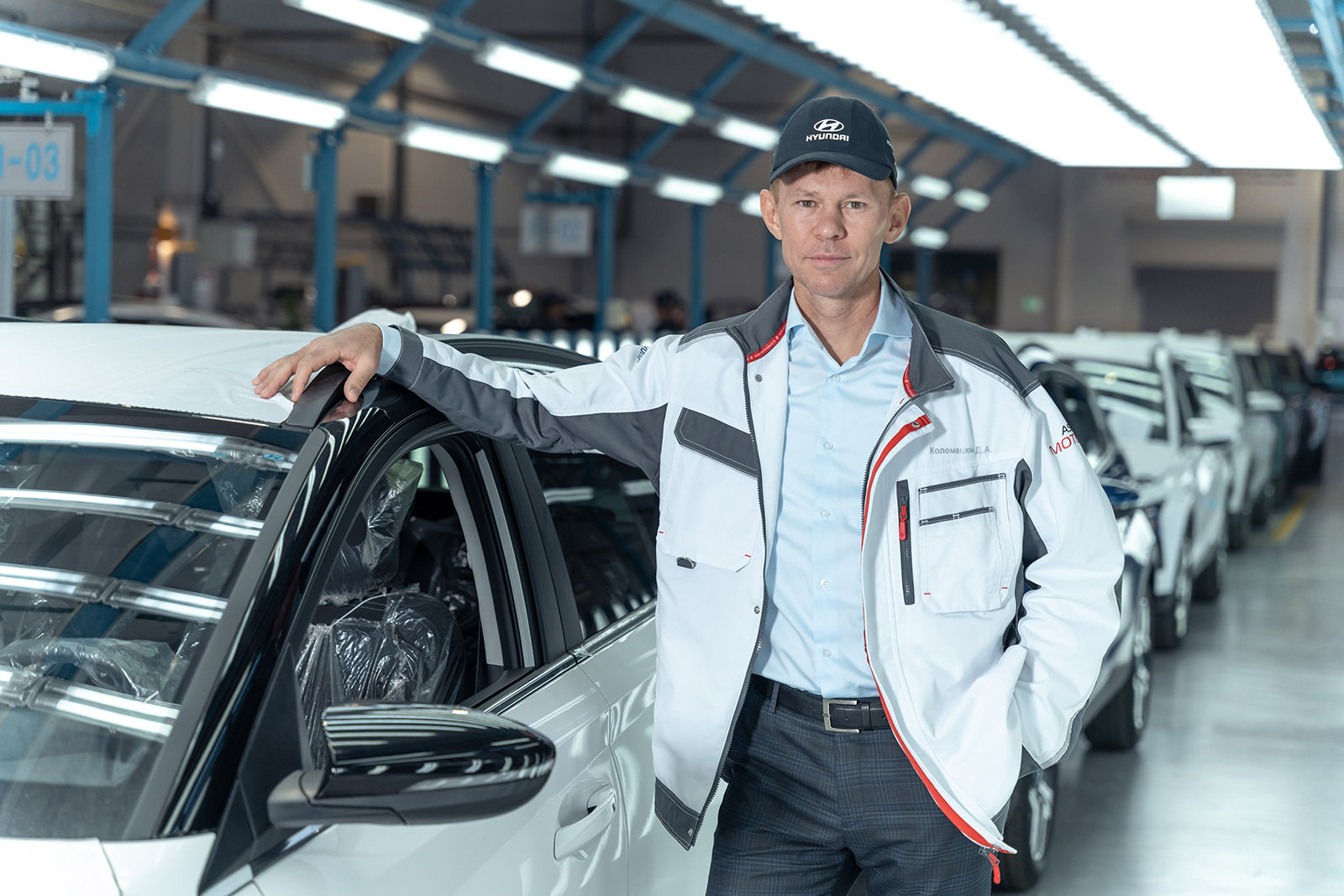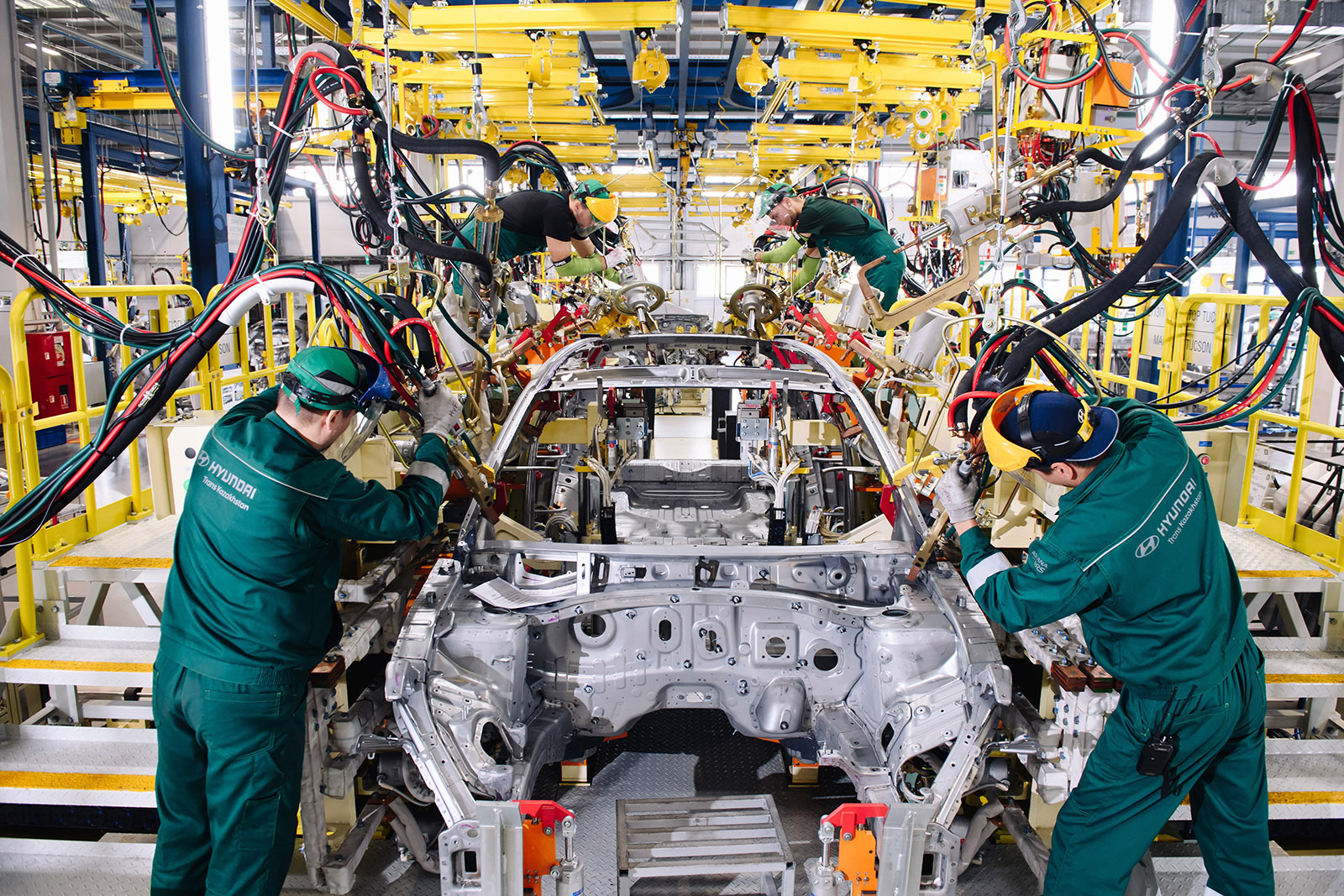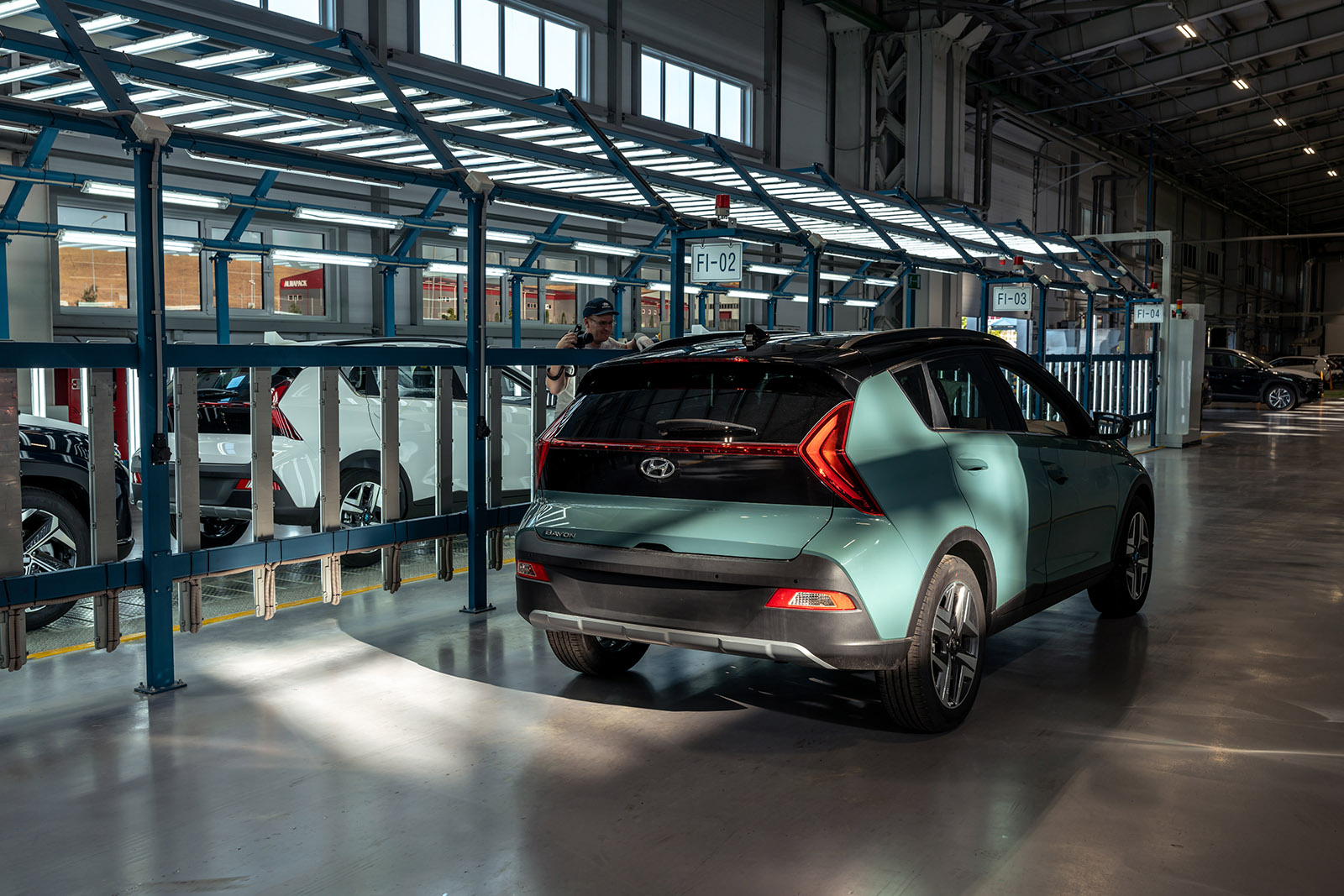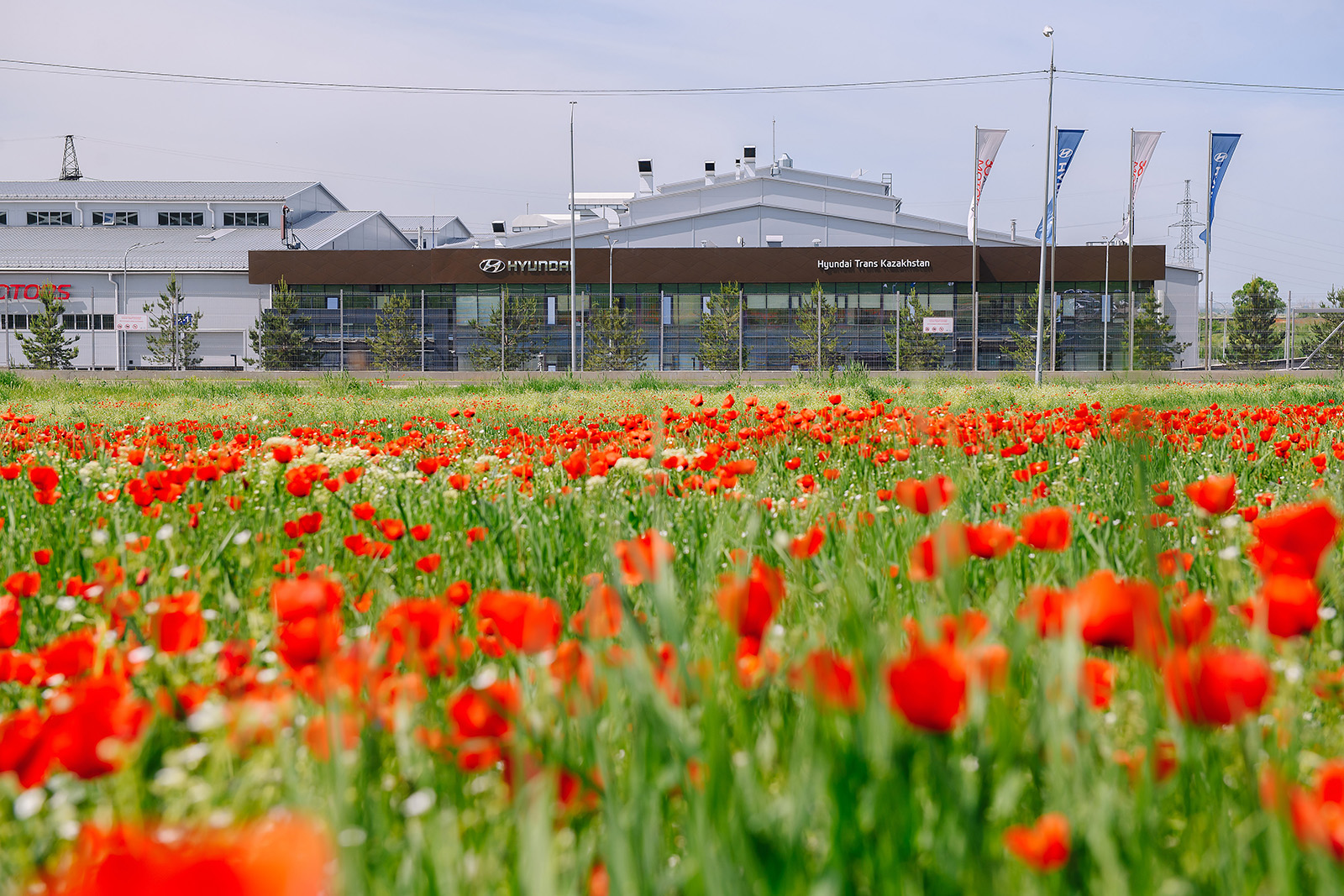Astana Motors increases production capacity, launches the production of a new model and begins the construction of a car component plant

The Hyundai Trans Kazakhstan car plant in Almaty is launching the production of the Bayon. The start of its sales in Kazakhstan is scheduled for October 2022.
Hyundai Trans Kazakhstan currently produces seven Hyundai models: the Sonata, Elantra, Santa Fe, Palisade, Staria, i30, as well as the Tucson using knock-down kits with welding and body painting. The company plans to produce 3,000 Hyundai Tucson cars this year.
The day before, the Almaty plant started the production of a pilot batch of the 2021 Hyundai Bayon compact urban SUV. It is planned that after receiving production certification from Hyundai Motor Company engineers this September, the cars will go to Hyundai dealerships in Kazakhstan for a test drive, and the mass production of the Bayon will begin in October.
Hyundai Trans Kazakhstan is not abandoning plans for the production of the popular Hyundai Accent and Creta models. According to Denis Kolomatsky, director of the authorized distributor Hyundai Auto Kazakhstan (subsidiary of Astana Motors), the company adjusted its plans due to the geopolitical situation, which further impacted the semiconductor and logistics crisis. The Hyundai Accent (known in Russia as the Hyundai Solaris), the Hyundai Creta in the version popular in Kazakhstan, as well as a number of components for these models, are produced at the Hyundai plant in St. Petersburg. Thus, cooperation on components for the production of two models in the lineup in Almaty is established with a supplier from the Russian Federation. Hyundai Trans Kazakhstan receives components for the production of other models from South Korea, India, China, and other countries.

Another reason for changing plans for the production of the Hyundai Accent and Creta is the current high ruble exchange rate. The price of components supplied from the Russian Federation is becoming uncompetitive. While the Hyundai Accent in the Active Plus configuration with an automatic gearbox used to cost 7 million 690 thousand tenge with an exchange rate of 5.3 tenge for a ruble, now this model in the same configuration costs about 12 million tenge. This is a significant price increase that will have an effect on the consumer.

“Distributors and manufacturers around the world are having a hard time today. Plants and importers are changing routes for the supply of components and vehicles and revising models in production. The Hyundai Trans Kazakhstan plant clearly plans to resume production of the Hyundai Accent and Creta as the logistics, semiconductor, and exchange rate situation improves. Like other manufacturers in the context of globalization, we are highly dependent on the state of the world market and have to adjust our plans accordingly. We have reached agreements with partners on new routes for the supply of components for a number of models and continue working in this direction. Our Almaty plant is 100% involved due to the release of new models, an increase in the knock-down kit production of the Tucson as well as other models,” noted the head of Hyundai Kazakhstan.

Denis Kolomatsky also said that the Hyundai Trans Kazakhstan plant will reach its full production capacity (47,000 vehicles per year) ahead of schedule in 2022. Next year, the enterprise will increase the production capacity to 75,000 vehicles per year, with up to 20,000 of them made using knock-down kits. 40,000 cars per year are planned to be made for Kazakhstan, while the rest will be exported. In 2021, Hyundai Trans Kazakhstan produced 22,000 cars for the Kazakhstan market; this year, the plan is 30,000, and it is planned to make 40,000 cars for the domestic market in 2023.

The Hyundai Trans Kazakhstan plant is a subsidiary of Astana Motors. The company is currently in the final stages of preparation for the construction of a plant for the production of components in the Almaty Industrial Zone near Hyundai Trans Kazakhstan. The new facility will produce multimedia systems for Hyundai cars, car seats, polyurethane floor mats, fender liner and mud flaps. Thus, a production cluster is being formed around the Hyundai Trans Kazakhstan passenger car plant.
